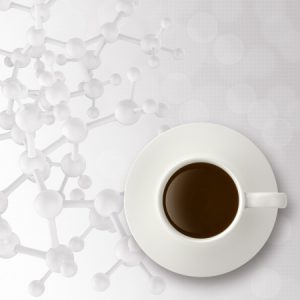Coffee lovers are likely enjoying a new study finding that coffee lowers risk for endometrial cancer, with the drink being almost the lone dietary factor linked to risk. The study was a large one and it’s coffee findings are similar to those of AICR’s report released last year.
That’s certainly good news for coffee lovers, but whether you do or don’t enjoy coffee, the beverage is only one of several ways you can protect yourself against endometrial cancer.
The study, published in this month’s Cancer Epidemiology, Biomarkers & Prevention, looked at 84 foods and/or nutrients related to endometrial cancer risk. Study researchers first investigated the link among about 300,000 women participants of the European Prospective Investigation into Cancer and Nutrition (EPIC). Women had filled out questionnaires about what they ate and other lifestyle habits, and then they were tracked for endometrial diagnosis or death. This led to 10 factors linked to either increased or decreased risk, including coffee, total fat, butter, and cheese.
Then the researchers looked at how these factors linked to 155,000 women who were in two US studies, the Nurses’ Health Studies I and II. These women had also had answered questions about diet and other factors.
Among all three studies, women who drank the most coffee had almost 20 percent lower risk of endometrial cancer compared to those who drank none or almost none. For those in the European study, the average high was about 3 cups a day. The US women in the high category drank on average about 4.5 cups of coffee a day versus none.
The link was found after accounting for known risk factors, such as body weight, age and smoking. Butter remained the only other factor consistent among all three studies, showing a moderate increased risk with the highest versus lowest consumption.
Endometrial cancer is among the most preventable. AICR estimates that 59 percent of endometrial cancer cases can be prevented with changes in body weight, diet, and activity.
While coffee is one factor linking to reduced risk of endometrial, the largest decrease in risk comes from staying a healthy body weight, according to the latest Continuous Update Project report. Getting to and staying a healthy weight reduces endometrial cancer risk, along with many other cancers.
Being physically active is another way you can reduce the risk of endometrial cancer.
Here’s more on the latest research on reducing endometrial cancer risk. And for more on coffee, the research, its phytochemicals and even recipes, take a look at our Foods that Fight Cancer: Coffee.
The CEBP study data and authors were supported from a combination of government grants and health organizations, including the National Institutes of Health, Cancer Research UK, and the Medical Research Council.





